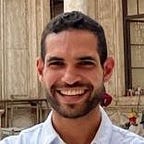Economists vs. Humans
“Winwood Reade is good upon the subject,” said Sherlock Holmes. “He remarks that, while the individual man is an insoluble puzzle, in the aggregate he becomes a mathematical certainty. You can, for example, never foretell what any one man will do, but you can say with precision what an average number will be up to. Individuals vary, but percentages remain constant. So says the statistician.”
And so, frankly, says the economist. Adam Smith first conceived economics in 1776, although some recent evidence even refers to a time before that. It’s been called a dismal science for a good reason: Since the very beginning, economists have been dealing with the subject in a utilitarian approach that ignores individuals’ wants and needs in order to accommodate the interest of “the common good.”
As the common good invariably depends on models, economists ruminated on supply and demand curves. They coined obscure terms like the free market, the invisible hand, and opportunity cost.
These models equated life satisfaction with economic growth and represented growth in terms of high salaries, big houses, and luxurious cars. In these models, economists assumed that people are rational and that they know the prices of everything. They assumed that people don’t attach any sentimental value to an old watch or fine dining.
However, the economists’ collective models were bound to fail. From the great depression in 1929 to the great recession in 2008, no one saw it coming. In hindsight, the models didn’t account for the dissimilar traits and the subtle differences of human beings. People don’t make assumptions based on the economists’ models; they know nothing about “the models.”
People care about diverse aspects of life — even within a “homogenous” group. When a person decides to buy a house, he would prefer to live next to their work rather than in the suburbs. Someone else could prefer to commute as they enjoy the natural scenery along the way. Another person could choose a location based on school districts. Each person optimizes for their own comfort — not a strict “utility” which a model would predict.
It doesn’t take long to infer that economists weren’t describing humans, they were describing another species. The term homo economicus has been coined to represent them.
As Jonathan Rowe, an author, wrote in his blog: The Tragedy of Economics: “This hypothetical person has no social affinities, no lapses of judgment or hang-ups, no capacity even for thinking about anyone besides him or herself. He goes through life with an unfailing and relentless calculus of personal loss and gain.”
Rowe went on to describe homo economicus as a political construct. It served to undermine the secular authority of the Roman Church, and then the divine right of kings, and more recently the “market.”
In any science simplification and assumptions are made to bootstrap theories and experiments. In this case, homo economicus hasn’t played out the way economists predict.
Homo sapiens aren’t insular, self-interested, competitive individuals. They are erratic, they make irrational decisions, and they care about each other. This is what’s fascinating about humans and this is what’s wrong with the models.
